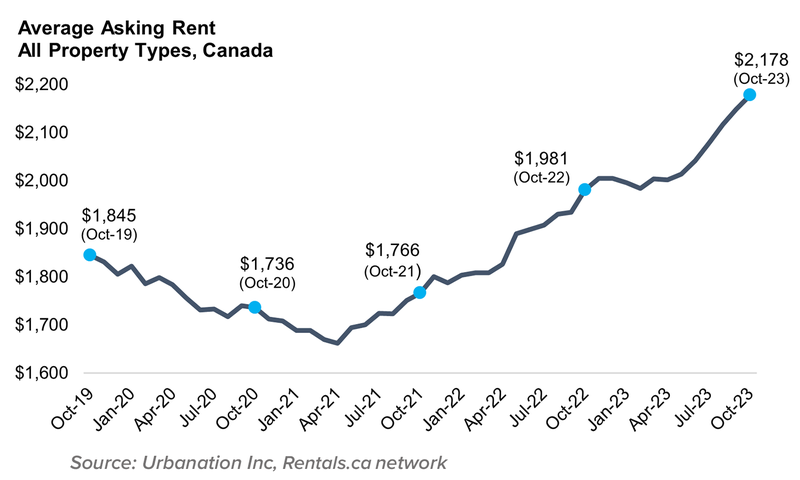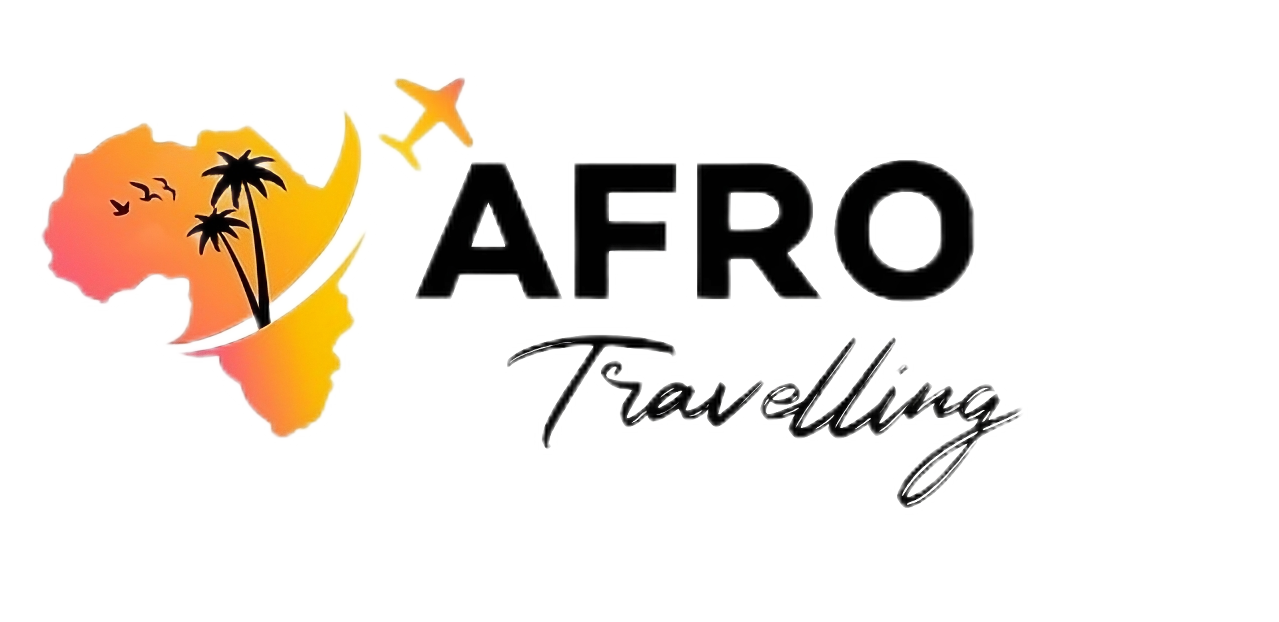The typical asking hire in Canada has elevated by about $175 over the previous six months, and is now practically 10% greater in comparison with a 12 months in the past.
As of October, the typical hire value for all unit sorts reached $2,178, in line with information from Leases.ca‘s newest month-to-month information. That’s up 1.4% in comparison with September, however slower than the 1.8% month-to-month improve seen again in August due to seasonable components.
One-bedroom hire costs had been up a whopping 29% year-over-year in Pink Deer, Alberta, whereas Halifax, NS (+20.6%) and Markham, ON (+20%) additionally noticed outsized positive factors.
The nationwide common hire for two-bedroom models has now surpassed $2,300 a month, up 1.7% from September and +11.7% in comparison with a 12 months in the past. The biggest will increase had been seen in Oakville, ON (+23.5%) and Quebec Metropolis, QC (+17.6%).

Excessive rents are contributing to inflation
Common rents in Canada at the moment are up over 31% in comparison with the low of $1,662 reached in April 2021.
This steep rise means hire costs at the moment are a number one contributor to the nation’s headline inflation fee, which the Financial institution of Canada is desperately making an attempt to convey again to its goal fee of two%.
As of September, hire inflation has shot as much as 7.3%, in line with information from Statistics Canada—the quickest tempo since 1983. It’s now the second main contributor to total inflation, after mortgage curiosity price, which is up 30.6%.
On a month-to-month foundation, hire inflation from August to September was 0.8%. That implies that of the headline CPI inflation studying of three.8% in September, 0.8% got here from hire inflation alone. One other 2.6% got here from mortgage curiosity price.
“It’s an enormous situation,” famous analyst Ben Rabidoux of Edge Realty Analytics. He pointed to the greater than 700,000 non-permanent residents added to the inhabitants over the previous 12 months—which incorporates worldwide college students and overseas employees—as a significant contributing issue to the upward strain on hire costs.
In response to housing affordability considerations, the federal authorities not too long ago introduced it plans to stage out its targets for brand new everlasting residents coming to Canada. The goal for 2024 and 2025 will improve as deliberate to 485,000 and 500,00, respectively, and maintain regular at 500,000 in 2026.
“These immigration ranges will assist set the tempo of Canada’s financial and inhabitants development whereas moderating its impression on vital programs akin to infrastructure and housing,” Immigration Minister Marc Miller stated.
Alberta leads the provinces in hire value development
Leases.ca reported that Alberta as soon as once more posted the quickest year-over-year improve in hire costs, which had been up 16.4% in October to $1,686.
Rents had been additionally up sharply in Nova Scotia (+13.6%) and Quebec (13.3%), due to each sturdy inhabitants development and “giant infusions of recent rental provide priced at above-average market rents,” Leases.ca famous.
The slowest annual will increase had been as soon as once more seen in Manitoba (+5.5%) and Saskatchewan (+4%).
Calgary and Montreal lead hire development in Canada’s largest cities
Calgary continued to guide hire value development in October, with a mean year-over-year improve of 14.7% to achieve $2,093. Montreal noticed the second-fastest tempo of development at 10.8%, with a mean value of $2,046.
Right here’s a have a look at the year-over-year hire will increase in among the nation’s key markets:
-
- Calgary, AB: +14.7% ($2,093)
- Regina, SK: +13.7% ($1,273)
- Montreal, QC: +10.8% ($2,046)
- Ottawa, ON: +10.6% ($2,197)
- Halifax, NS: +9.5% ($2,017)
- Winnipeg, MB: +7.4% ($1,521)
- Vancouver, B.C.: +4.4% ($3,215)
- Toronto, ON: -0.8% ($2,908)


